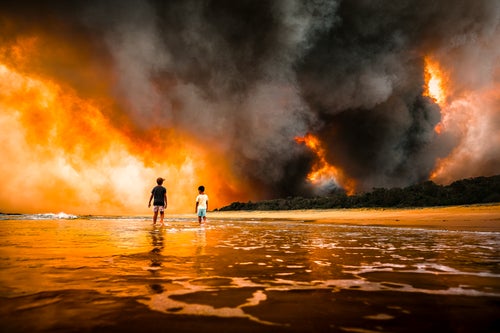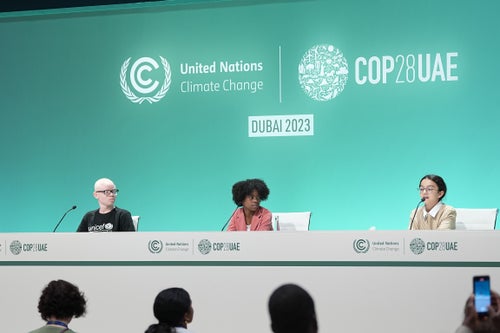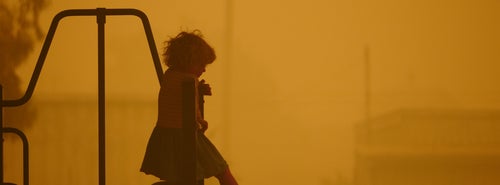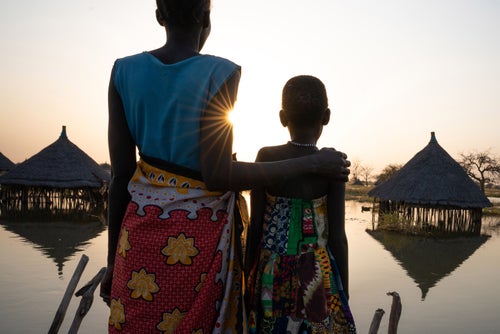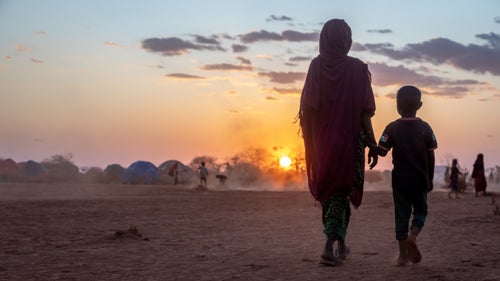Around the world, children and young people are protesting and speaking up about what matters to them. Why? Because they feel world leaders are not listening to concerns on issues which impact children now, and into the future. While a wave of protests led by children and young people have gained momentum over the past few years, child rights activism is nothing new. We take a look at five young activists who are using their voices to make change.
1. Malala Yousafzai
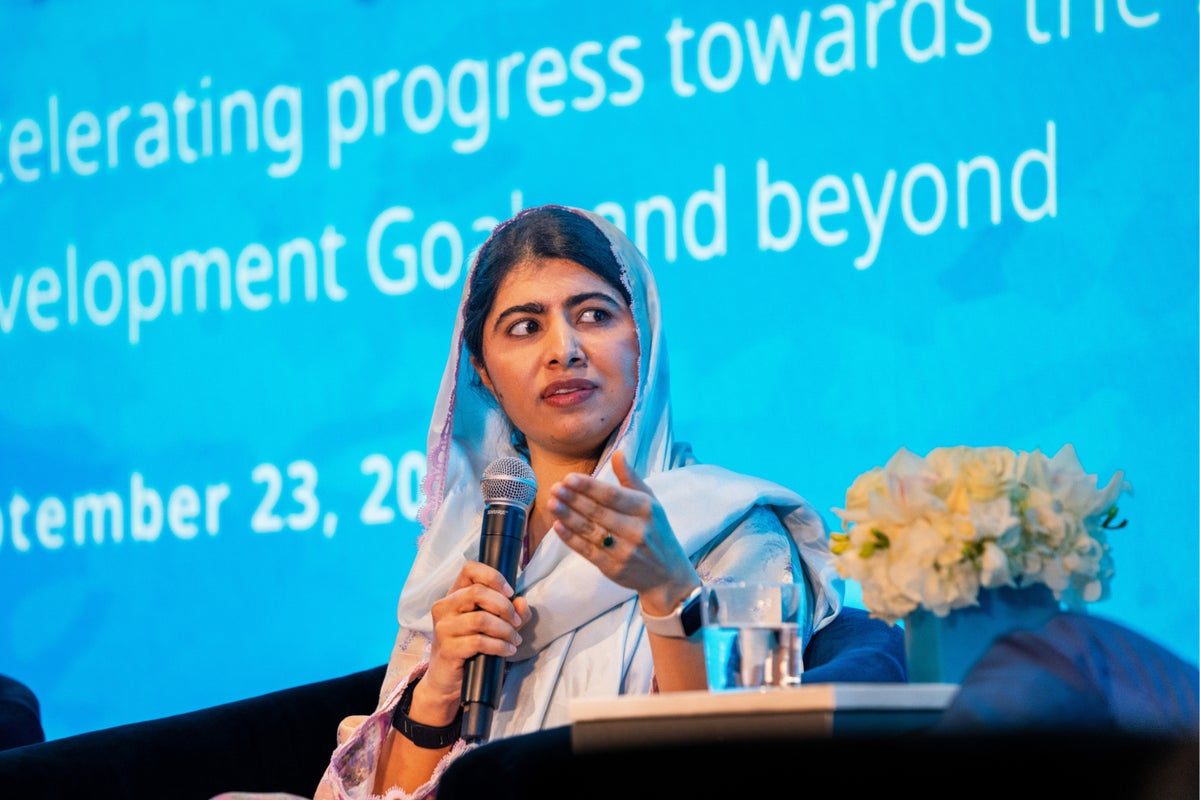
"I tell my story not because it is unique, but because it is the story of many girls."
At just 15 years old, Malala Yousafzai was shot in the head on a school bus by the Taliban in 2012 for opposing the Islamist militant group’s restrictions on female education in her home country of Pakistan. It is a story that made her a household name around the world.
Incredibly, Malala survived the assassination attempt and went on to devote her life to advocate for the right of all girls to receive a free, safe, and quality education. She and her father founded the Malala Fund, a not-for-profit organisation that raises awareness of the social and economic impact of girls' education and empowers girls to demand change. Her important and influential advocacy work saw her become the youngest-ever Nobel Peace Prize Laureate in 2014.
Since then, Malala has often collaborated with UNICEF to promote girls’ education and child rights around the world. In 2017, Malala visited Nigeria with UNICEF, where she met with girls displaced by conflict and urged the country's leaders to make girls' education a priority.
In 2020, the Malala Fund teamed up with UNICEF and other partners to deliver the ‘Building back equal: girls back to school guide’, which gave policymakers and other decision-makers the tools to ensure girls’ education was a focus of the COVID-19 response.
Malala has addressed major international forums, including the United Nations General Assembly, and in 2024 participated in the Summit of the Future at the United Nations General Assembly, a high-level policy dialogue aimed at accelerating progress toward the UN Sustainable Development Goals.
Follow Malala on Instagram.
2. Greta Thunberg
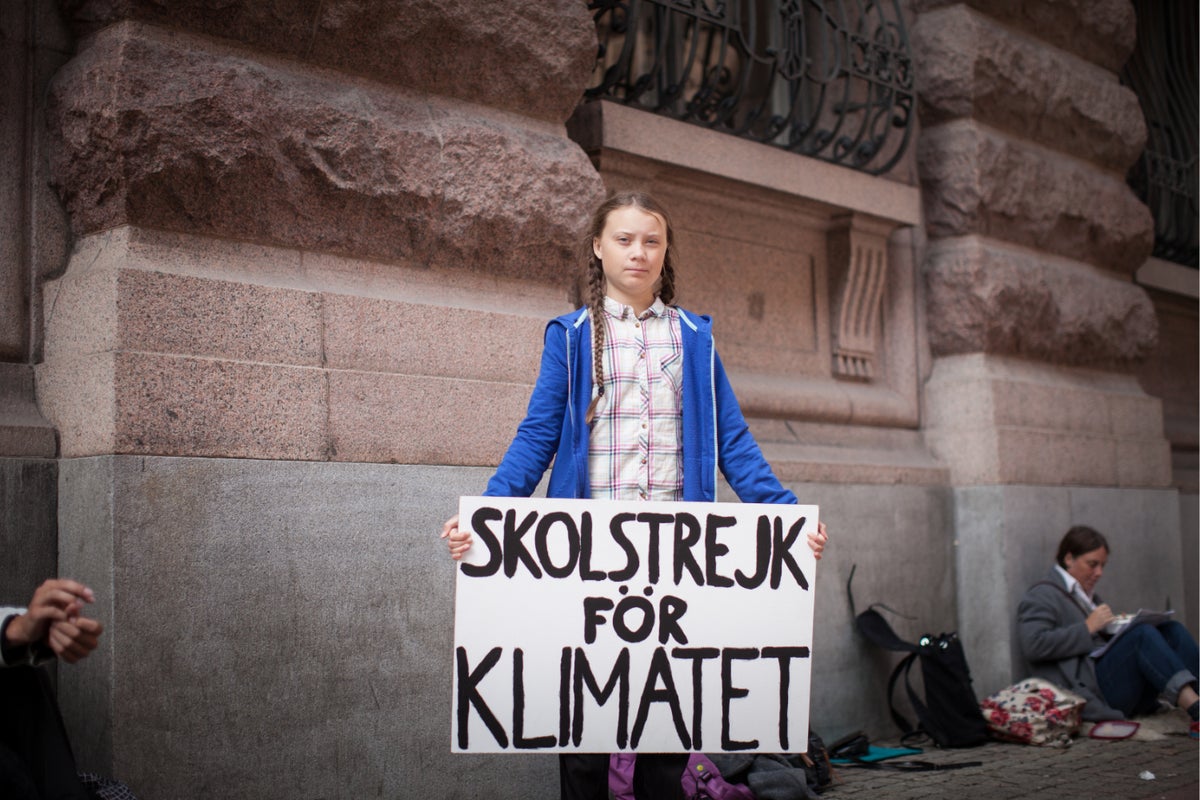
In 2018, then 15-year-old student Greta Thunberg first made a name for herself when she started skipping school every Friday to protest outside the Swedish parliament to call for stronger action on climate change. Holding up a sign saying Skolstrejk för klimatet (School Strike for Climate), she soon became a global phenomenon and has helped spread the movement around the world.
Greta has spoken at climate rallies in Stockholm, Helsinki, Brussels and London. In 2019, she gave a searing and emotional speech at the United Nations, calling on decision-makers around the world to commit to meaningful climate change action.
During the COVID-19 pandemic, Greta also spoke about the need for an equitable distribution of vaccines. She donated €100,000 (AUD $155,000) from her Foundation to the WHO Foundation in support of COVAX and UNICEF to help achieve this goal.
More recently, Greta has been a vocal advocate for Palestinians following the escalation of conflict in Gaza in October 2023.
Greta has also inspired other young climate activists around the world. Anjali Sharma was just 14 years old when she began helping to organise similar protests around Australia, mobilising more than 350,000 people.
By age 16, she led and won a class action lawsuit against the Australian Government and then-Environment Minister Sussan Ley over climate change. In a landmark decision, the Federal Court ruled that leaders had a duty of care to consider the health and wellbeing of children in Australia when making decisions that could impact the climate. But the ruling was overturned by the government on appeal in 2022, and Sharma continues to advocate for the federal government to legislate a Duty of Care bill.
"I feel not anxiety but disbelief. Disbelief that the lives of young people and future generations are being shaped by decisions being made today, and yet we must still beg and plead to have our health and wellbeing protected by legislation in the face of destructive climate pollution."
Follow Greta on Twitter.
3. Jahdai Vigona and Dante Rodrigues
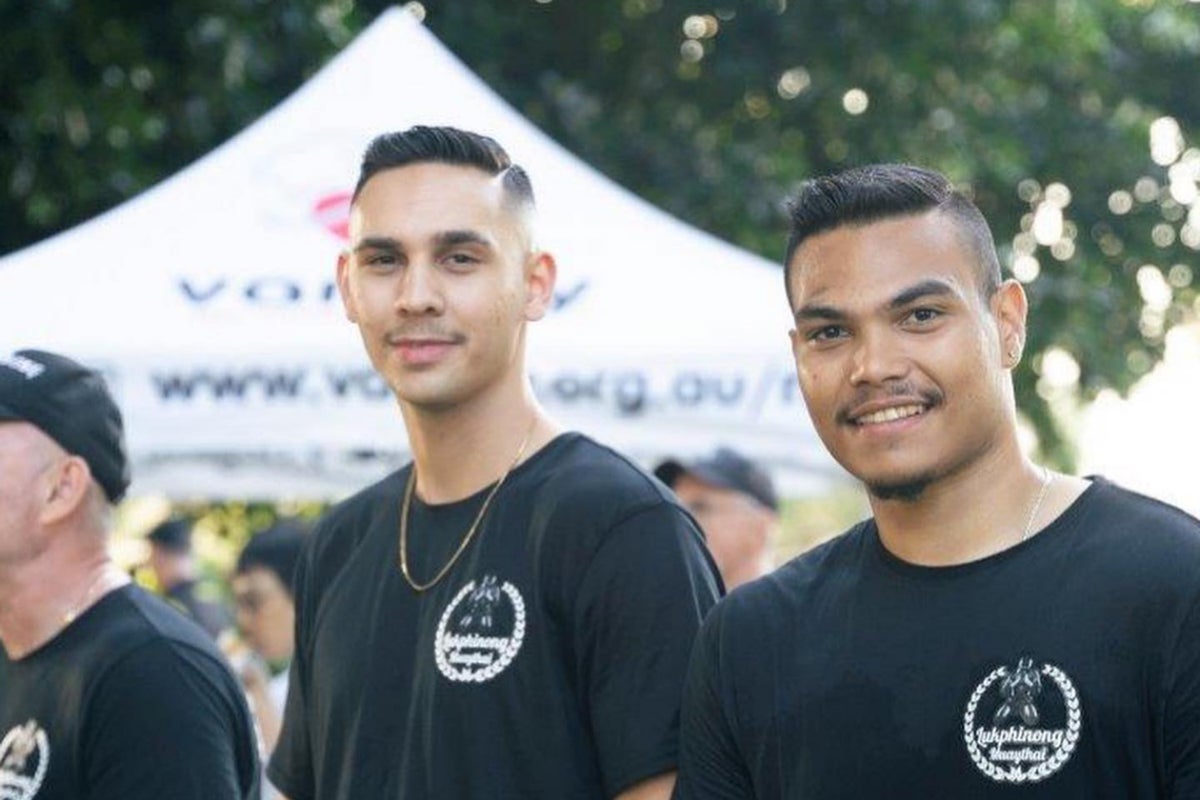
At 23 years old, Jahdai Vigona has already lost countless friends and family to suicide and drug and alcohol abuse. According to the Australian Bureau of Statistics, suicide rates among Aboriginal and Torres Strait Islander people are more than two times higher than the rest of the population, with the suicide rate for Indigenous youth under 25 more than three times as high.
After seeing firsthand the impact of domestic violence, drug and alcohol abuse, crime and mental health struggles on their Tiwi Islands community, Jahdai and his cousin Dante Rodrigues launched the One Percent program. Combining Dante’s expertise as a professional kickboxer and Jahdai’s mental health background working with Indigenous youth, the program involves free weekly sessions that are open to anyone who's keen to pick up a sweat and connect with other likeminded young men. Operating across urban and remote communities in the Northern Territory, they work with schools, detention centres, and community organisations to help Indigenous youth and men build mental resilience and create positive change in their lives.
As a dedicated advocate for Indigenous youth empowerment and wellbeing, Jahdai was named the 2023 NT Young Australian of the Year.
*If you, or a child or young person you know are experiencing negative thoughts or feelings, there are services out there that can help! Call Kids Helpline at 1800 55 1800, Lifeline on 13 11 14, or 13YARN on 13 92 76.
Here are three more young Indigenous leaders you should know about.
4. Thandiwe Abdullah
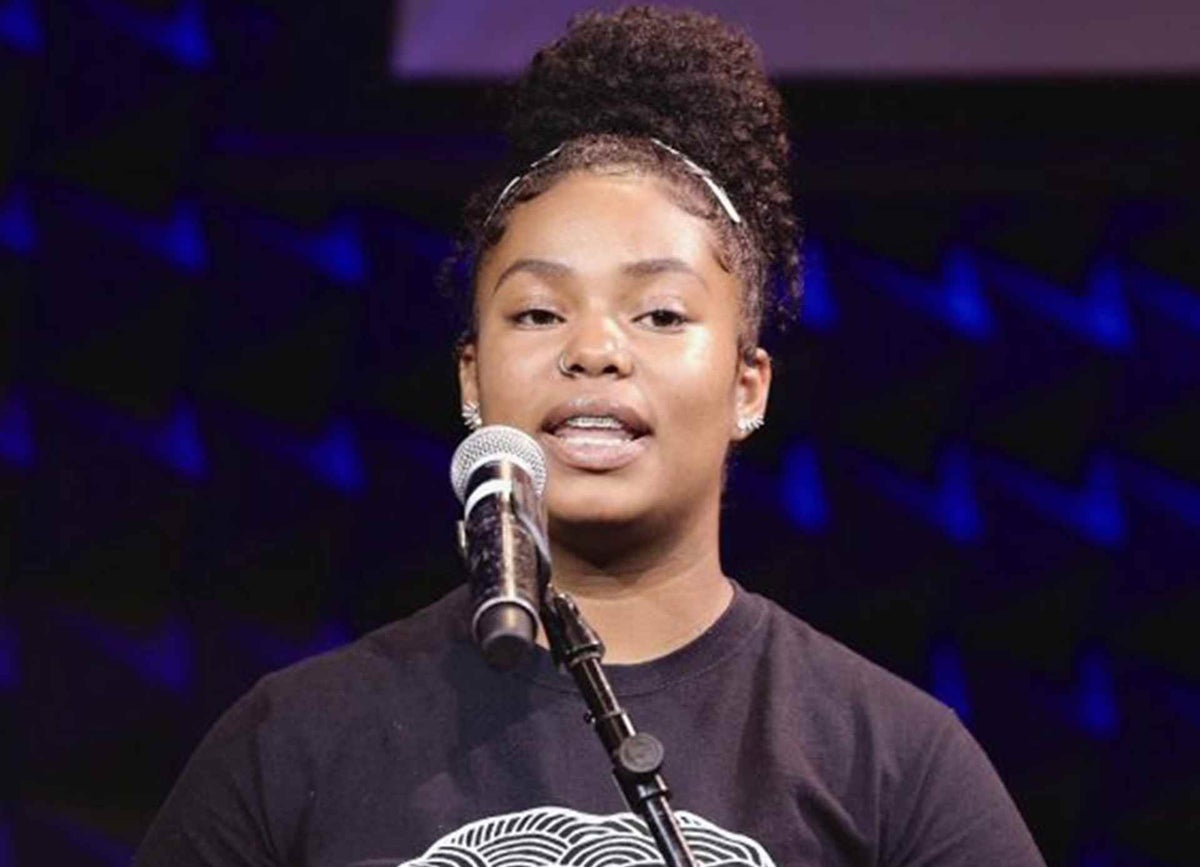
Thandiwe Abdullah started attending political rallies from a young age alongside her mother, Melina Abdullah, who is a prominent activist in her own right. By the age of nine, Thandiwe was already involved in the growing Black Lives Matter movement in the United States, giving an impromptu speech at a rally for Trayvon Martin, a 17-year-old fatally shot by police in Los Angeles, California.
By her seventeenth birthday, Thandiwe already had an impressive list of achievements under her belt. After noticing that she and her siblings were some of the only children involved in the Black Lives Matter movement, she co-founded the Black Lives Matter Youth Vanguard – an advocacy group made up of children and young people aged 6 to 18. She also helped create the Black Lives Matter in Schools program and successfully campaigned to end random police searches in LA’s public schools.
In 2018, she addressed a crowd of 500,000 people during the Women’s March in Los Angeles, and she was featured in TIME Magazine as one of that year’s 25 Most Influential Teens. Thandiwe has also been active with March for Our Lives, a student-led organisation which has led demonstrations in support of gun control legislation.
"For me, success and my work should always be connected to the community. Making sure that I'm continuing to support and uplift – even if it's not my own people – anyone who is oppressed, anyone who is in need or being subjugated. That's my job."
Follow Thandi on Instagram.
5. Millie Bobby Brown
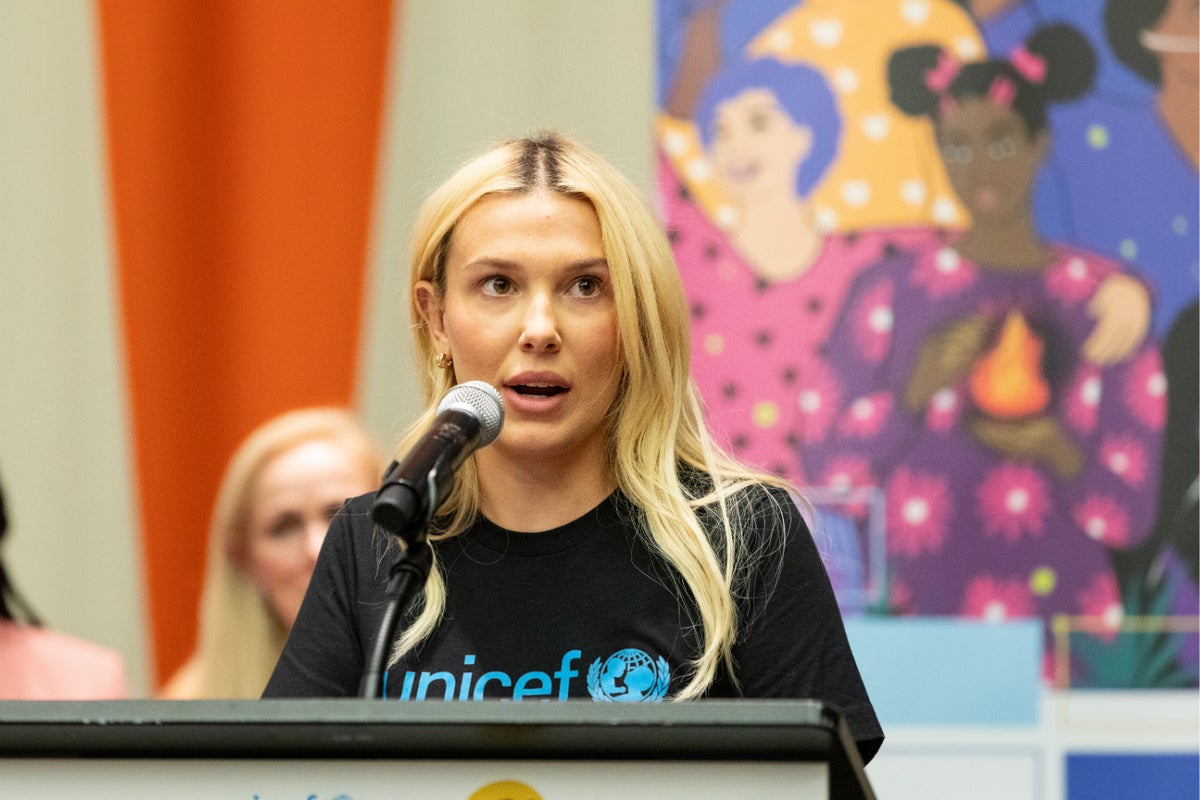
Best known for playing Eleven in the popular television series Stranger Things, British actor Millie Bobby Brown is also a vocal advocate for the rights of children and young people and has supported UNICEF since 2016. She was 14 years old when she was named UNICEF’s youngest-ever Goodwill Ambassador in 2022.
Millie uses her global platform to help raise awareness of issues affecting young people around the world, including lack of access to education and healthcare, as well as the impact of violence and poverty on children. As someone who has experienced bullying herself, especially since being in the public eye, Millie also speaks out against online bullying and promotes mental wellbeing and positive social media use.
This year, Millie delivered a speech to the United Nations during the Commission on the Status of Women (CSW) to champion the importance of girls’ rights. She also visited Brazil with UNICEF, where she met with girls and young women to hear about their lives and the issues they face, including a lack of access to period supplies, gender discrimination and sexual violence.
"I will speak out for the millions of children whose voices have been silenced for far too long. I will shine a light on the issues that vulnerable children have suffered around the world. Including representing them at places they haven’t yet had a seat at the table."
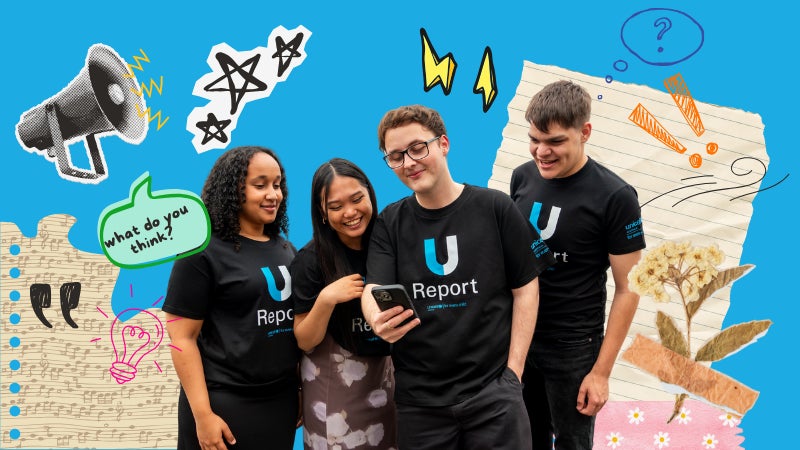
Join U-Report
U-Report is UNICEF’s digital community for young people where you can raise your voice and share opinions on topics that matter to you. U-Report is a free, confidential digital polling platform open to anyone aged 14-24. Join today!
Related articles
Stay up-to-date on UNICEF's work in Australia and around the world












